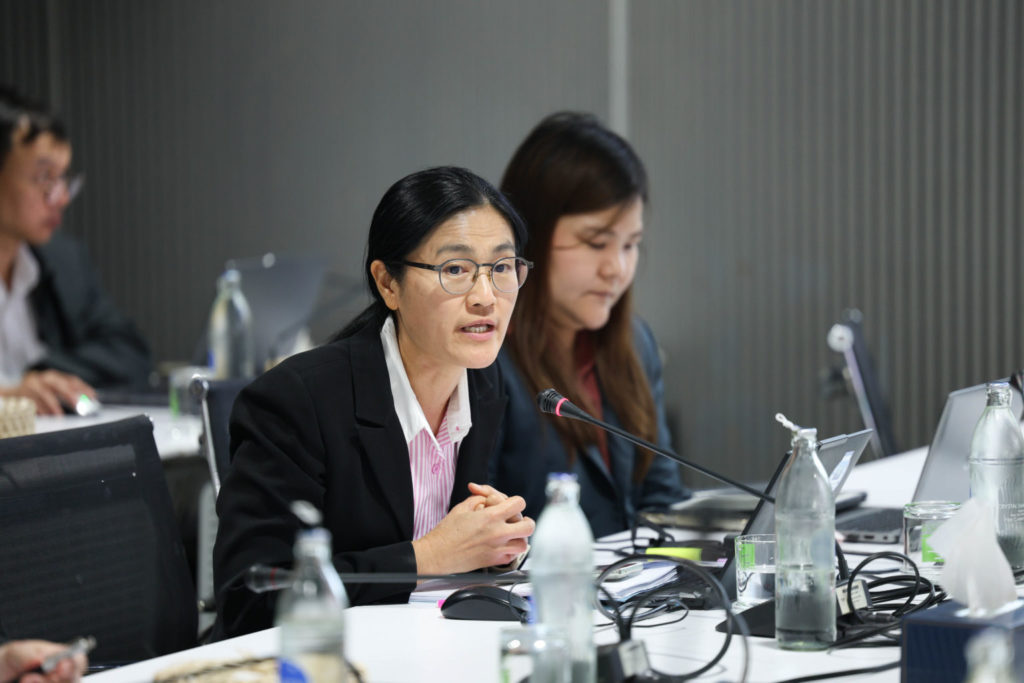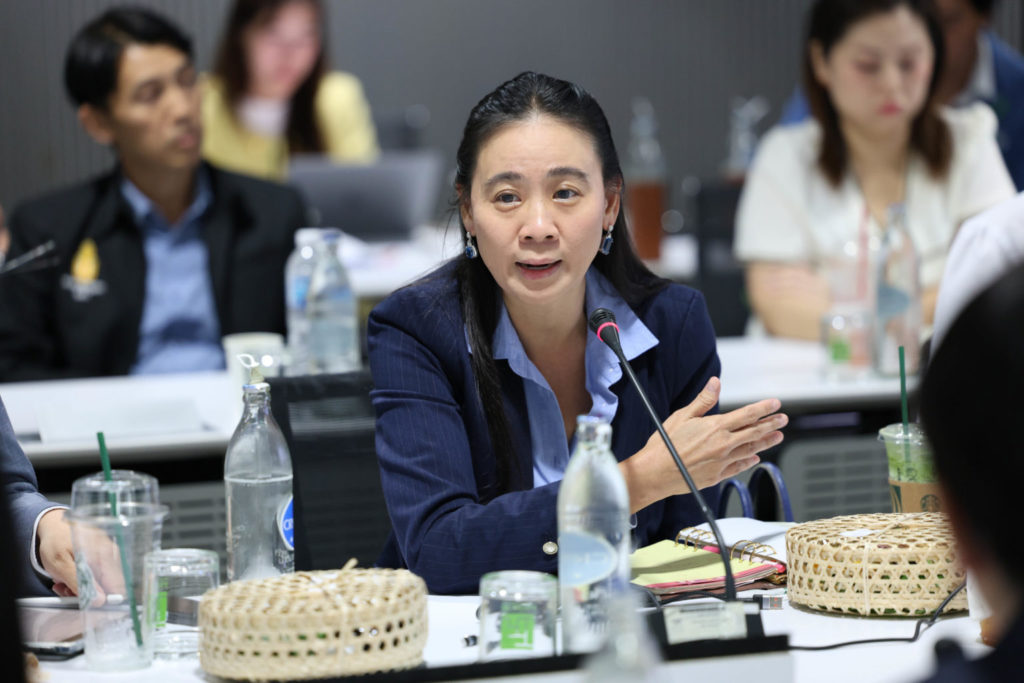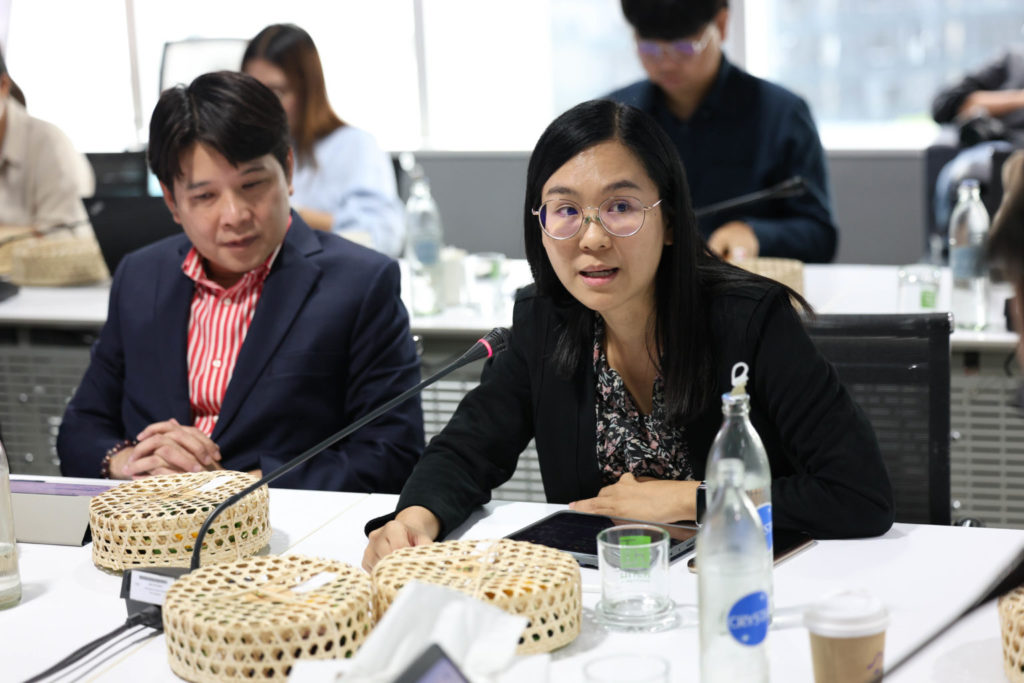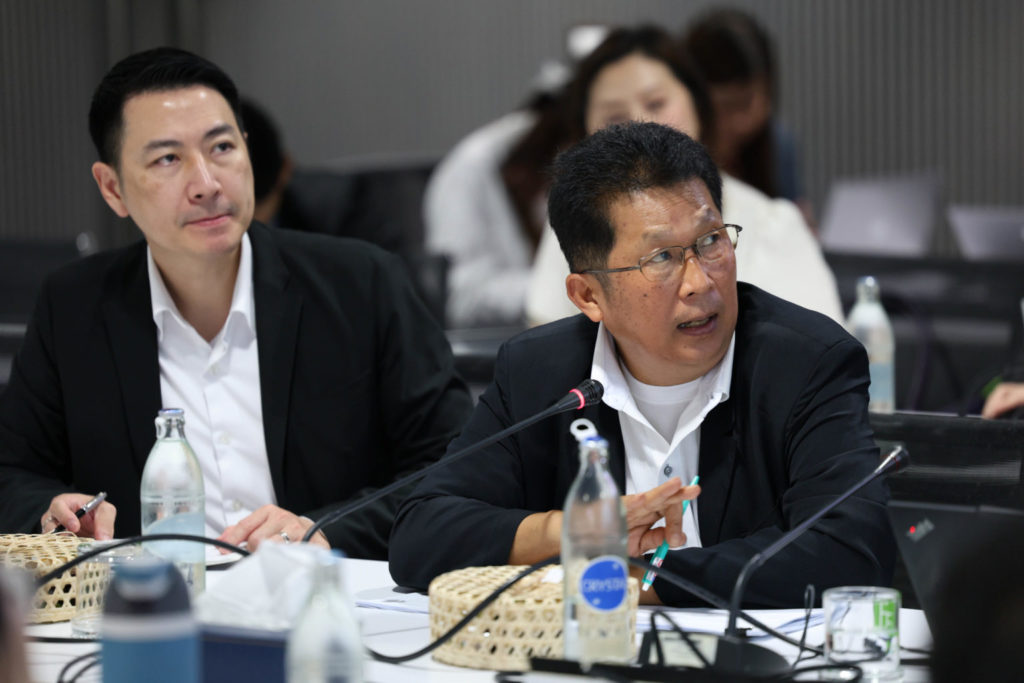NXPO, in collaboration with the Thai Industrial Standards Institute (TISI) and the Management System Certification Institute (Thailand) (MASCI), hosted a public hearing on the Green Enterprise Indicator (GEI) on 17 July 2025. The hybrid event, held at NXPO and streamed online, aimed to gather feedback on the draft GEI—a tool designed to support enterprises in transitioning toward a green and circular economy.
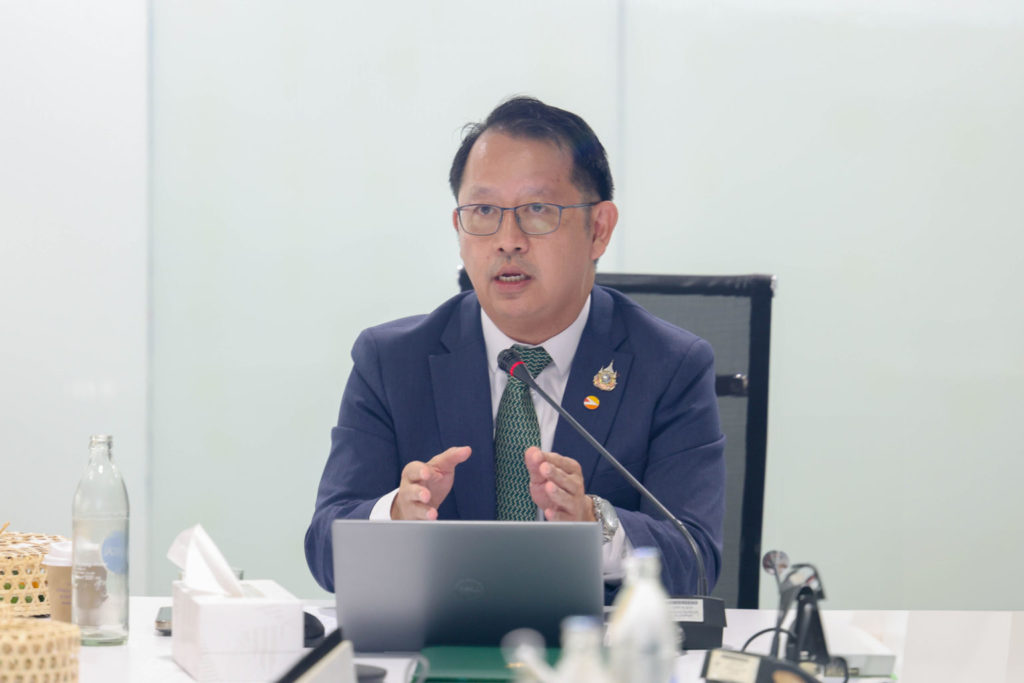
In his opening remarks, Assoc. Prof. Wongkot Wongsapai, Vice President of NXPO, emphasized that the GEI initiative is the result of joint efforts by NXPO, TISI, MASCI, the Office of Small and Medium Enterprises Promotion (OSMEP), and the Federation of Thai Industries (FTI). The goal is to develop a standard indicator to guide and support businesses—particularly SMEs—through the green transition, with the ultimate aim of establishing it as a national standard. The draft GEI has undergone multiple stakeholder consultations and is envisioned as a strategic tool to help enterprises set targets aligned with their readiness for a circular and low-carbon future.
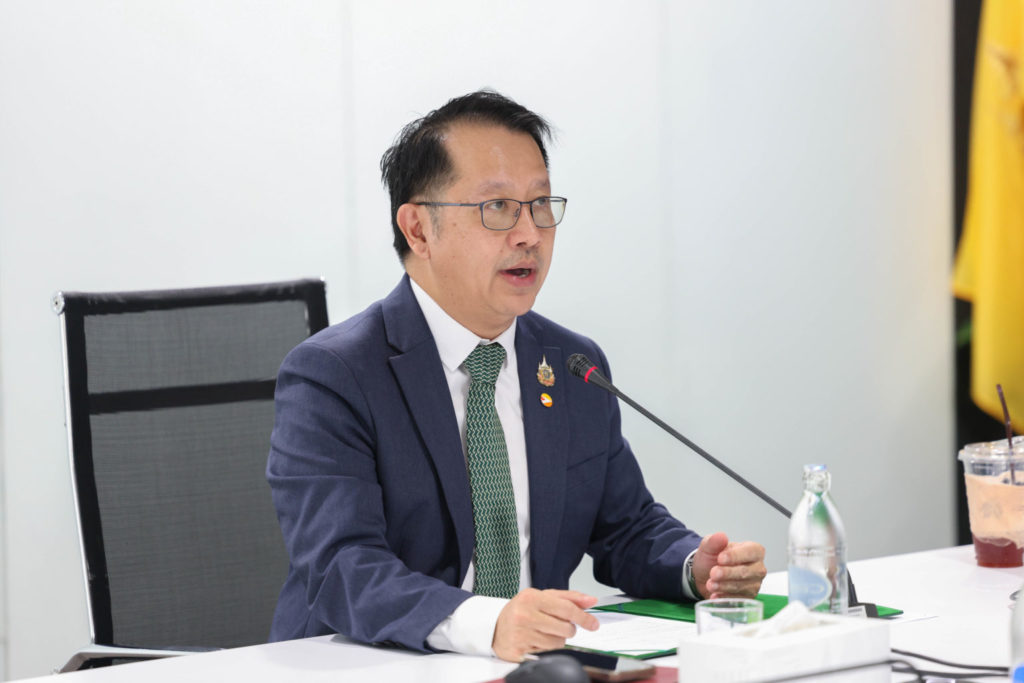
To achieve Thailand’s Nationally Determined Contributions (NDC) target by 2030, greenhouse gas emissions must be reduced across all sectors, including small and medium-sized enterprises. Progress toward this goal is essential for enhancing Thailand’s international competitiveness and fulfilling its climate commitments. A standardized GEI will play a critical role in linking various support mechanisms to drive sustainable economic growth.
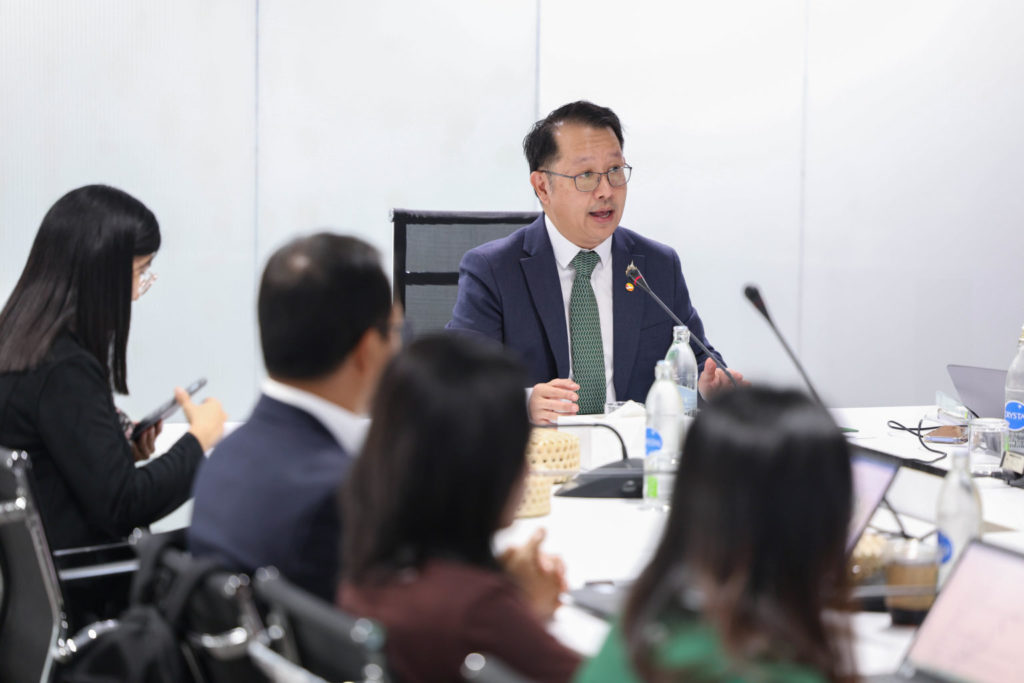
“This draft GEI has already passed several rounds of expert consultations and has been endorsed by TISI’s technical subcommittees on environmental and circular economy standards. This public hearing helps address remaining gaps and brings us a step closer to formalizing the indicator as a national standard,” said Assoc. Prof. Wongkot.
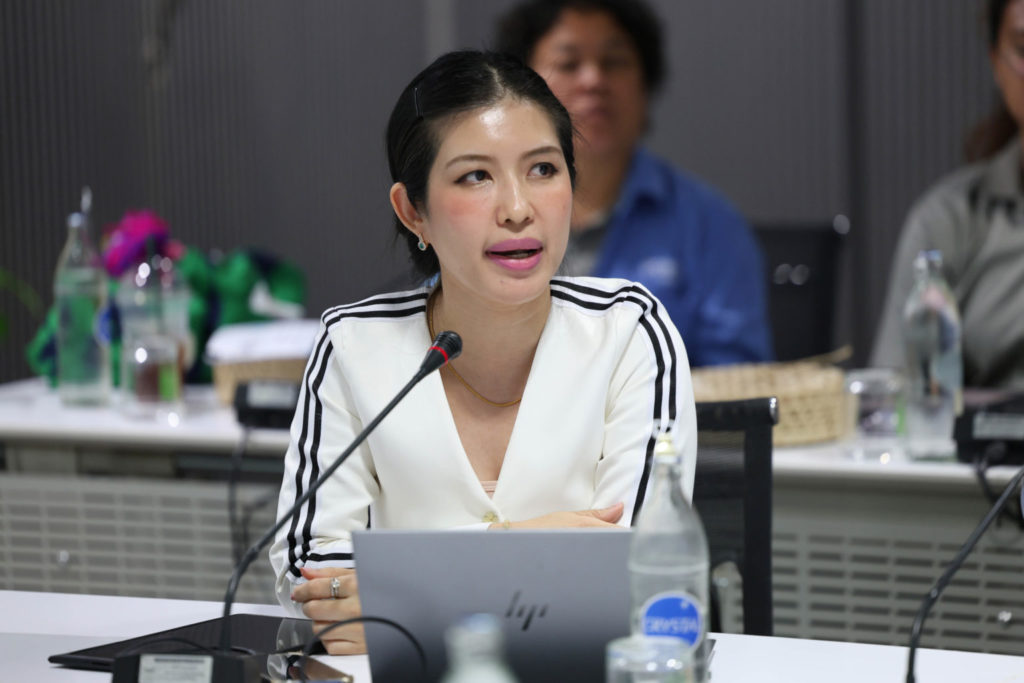
Dr. Saravanee Singtong, Director of the Sustainability Policy Division at NXPO, provided an overview of the GEI’s development. She explained that NXPO has been actively promoting the circular economy (CE) since 2022, beginning with the CE Forum organized in partnership with the Thai Sustainable Consumption and Production Network (THAI-SCP). This forum convened over 2,000 stakeholders from across the financial, industrial, public, and private sectors to foster a shared understanding and promote collaborative action. Insights from the forum informed the development of the CE Vision 2030 white paper and contributed to ongoing policy and indicator design.
NXPO also worked closely with OSMEP to support SME participation in the green transition—an effort that requires targeted investment, practical tools, and innovative solutions. Through this work, NXPO identified six key enablers of the circular economy ecosystem: 1) Capacity building, 2) Certification and standard systems, 3) Research and development, 4) Regulations and financial/fiscal incentives, 5) Investment, and 6) Marketing and export promotion. Dr. Saravanee also emphasized the importance of business adaptation to three circular models: 1) New Business Models, requiring operational transformation; 2) New Resource Cycles, promoting the use of secondary rather than virgin materials; and 3) New Feedstock Loops, involving material recirculation through innovation.
In addition, NXPO has partnered with OSMEP and SDG Move to develop the BCG Indicator, based on four pillars: Value Chain, Sustainability, Innovation, and Governance. The BCG Indicator has already been used in evaluating the BCG Awards at the FTI Expo 2025 and is being further refined through collaboration with the Board of Investment (BOI).
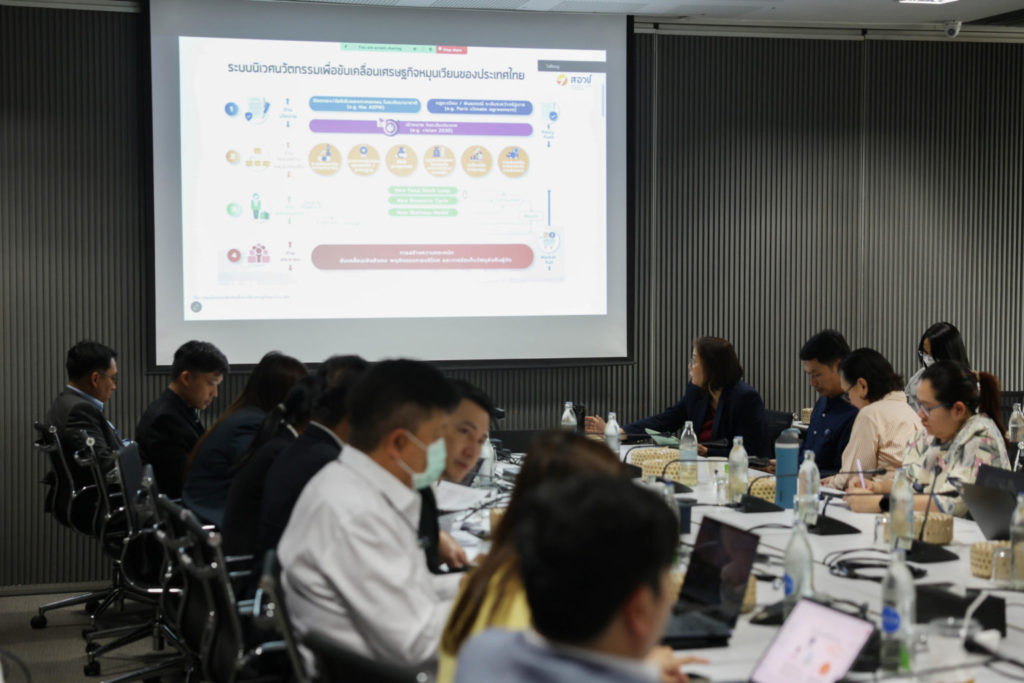
Dr. Saravanee noted that the GEI is designed to help businesses adopt innovation, green supply chain practices, and supplier engagement to account for indirect emissions across the value chain. This capability is essential to mitigating risks from non-tariff measures, particularly environmental trade barriers that affect participation in global supply chains. As such, the GEI must be modern, internationally aligned, and capable of supporting Thai industries in achieving long-term competitiveness, environmental performance, and market access.
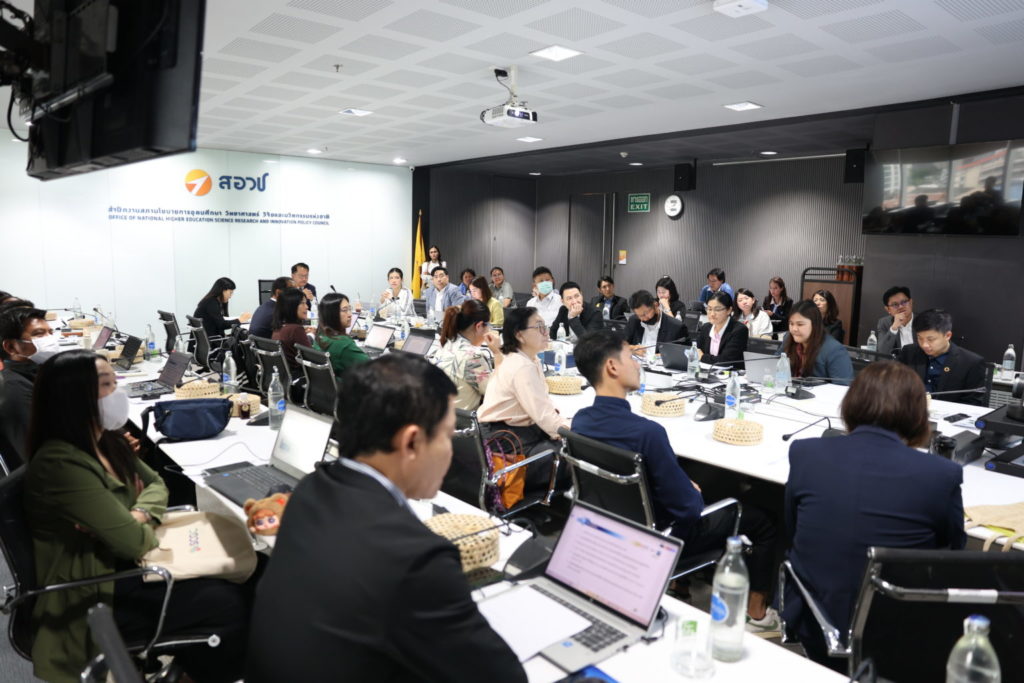
“We must continue to advance this initiative to equip Thai enterprises with strategic tools—especially through the integration of innovation—to remain competitive in the global economy,” Dr. Saravanee said.
Following the overview, Ms. Jureeporn Boonlong, Project Manager at MASCI, and her team presented the current progress of the GEI and invited stakeholder feedback. The input collected during the hearing will be compiled into a final report to refine the indicator and prepare it for formal submission to NXPO and TISI for further action.
